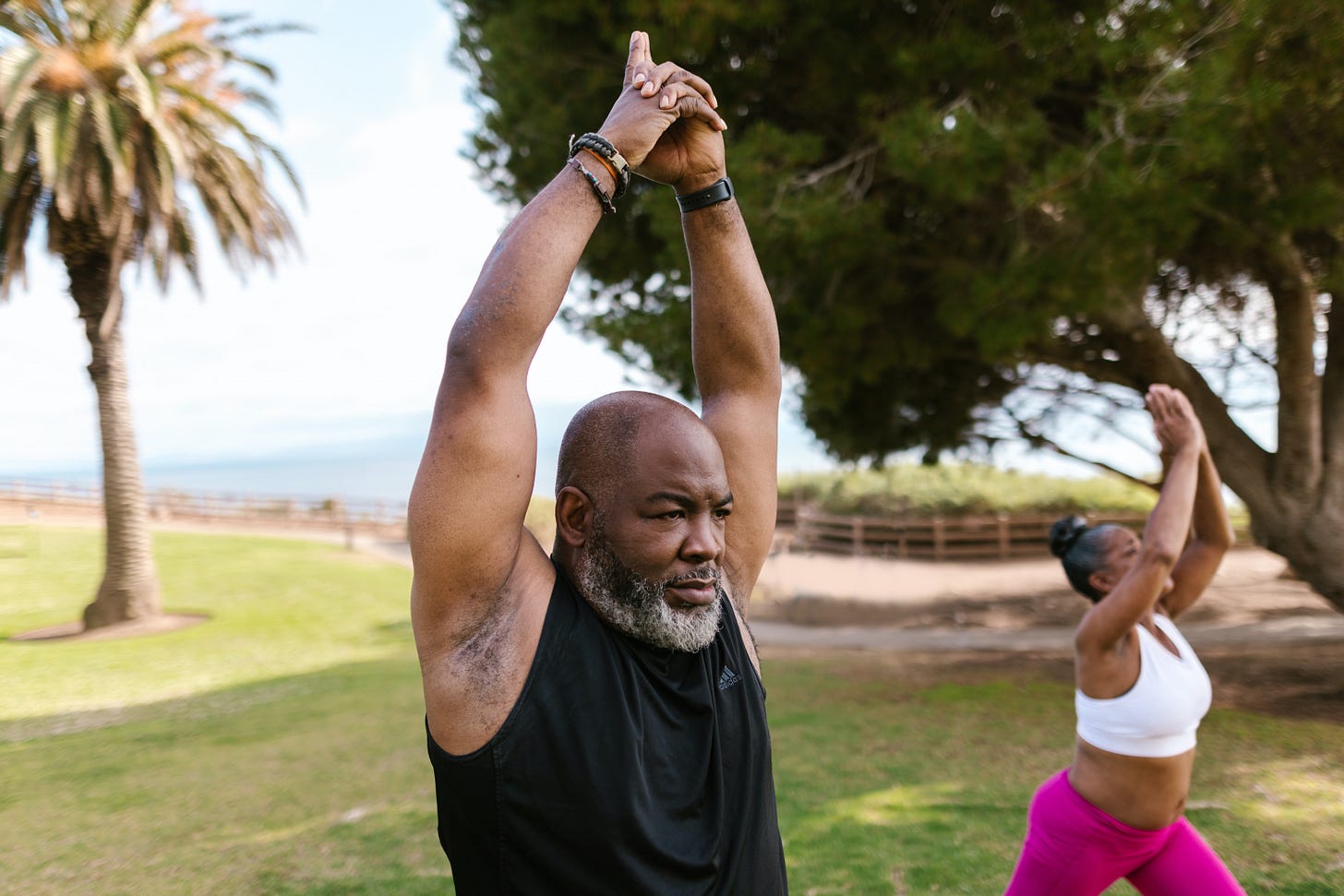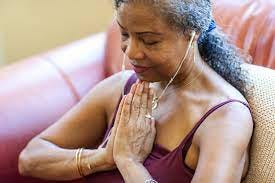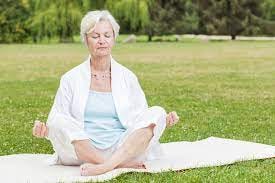With so many older adults addressing mental health issues post pandemic, can meditation really help?
Numerous proponents believe that it can have reconstitutive effects
The COVID-19 pandemic has had a profound impact on the emotional well-being of people worldwide, with older adults being particularly vulnerable. The prolonged periods of isolation, fear, and uncertainty have taken a toll on their well-being. As the world emerges from the pandemic, addressing the mental health challenges faced by older adults becomes crucial. Many experts in the field view the transformative potential of meditation as a powerful tool to support psychological recovery and security for society's aging population post-pandemic.
While I can't remember what or who drove me to do it, I took a transcendental meditation class in the late 70s. I experienced a positive benefit, but could never develop a consistent regimen. Being young at the time and trying to experience life, finding holes in my schedule to do it proved challenging. Since that time, I've practiced meditation on a somewhat regular basis, particularly during the pandemic and I'm at the point where I've gotten more consistent. Consequently, I wanted to share with you some of the things that I learned as I reengaged with the concept.
I. Understanding the Mental Health Impact of the Pandemic on Older Adults
A. Isolation and Loneliness:
The pandemic necessitated physical distancing measures, leading to increased isolation and loneliness among older adults. The loss of social connections and reduced opportunities for social engagement significantly impacted their mental health. Studies have shown that prolonged isolation can contribute to depression, anxiety, cognitive decline, and even increased mortality rates among older adults.
B. Anxiety and Fear:
The uncertainty surrounding the pandemic, coupled with the higher vulnerability of older adults to severe illness, led to heightened anxiety and fear. Older adults often faced concerns about their health, the health of loved ones, and the overall impact of the pandemic on their lives. These fears can exacerbate existing mental health conditions or lead to the development of new ones.
C. Depression and Grief:
Older adults may have experienced significant losses during the pandemic, such as the death of friends or family members, financial hardships, or the inability to engage in meaningful activities. These losses, combined with the disruption of familiar routines, can contribute to feelings of depression and grief. Untreated depression and unresolved grief can have a profound impact on overall well-being and quality of life.
D. Cognitive Decline and Memory Issues:
Older adults may have experienced cognitive decline and memory issues exacerbated by the stress and emotional toll of the pandemic. The cognitive load associated with adapting to new technologies for remote communication, adhering to safety protocols, and managing the constantly evolving information about the virus can put a strain on cognitive abilities. Meditation offers potential benefits for cognitive health, including improved attention, focus, and memory.
II. The Science Behind Meditation
A. Defining Meditation:
Meditation encompasses a range of practices that involve training the mind to focus and redirect thoughts, ultimately leading to a state of mental clarity and emotional well-being. Common forms of meditation include mindfulness meditation, loving-kindness meditation, and guided visualization.
B. The Neuroscience of Meditation:
Scientific research has provided insights into the neurological changes that occur during meditation. Studies using brain imaging techniques have shown that regular meditation practice can lead to structural and functional changes in the brain, including increased gray matter density in areas associated with attention, emotion regulation, and memory. These changes suggest that meditation can positively influence brain plasticity and mental resilience.
C. Benefits of Meditation for Mental Health:
Numerous studies have highlighted the mental health benefits of meditation, including:
Stress Reduction:
Meditation techniques can activate the relaxation response, leading to a reduction in stress hormone levels and a calmer physiological state. This can be particularly beneficial for older adults who may experience heightened stress levels due to various life stressors.
Improved Emotional Well-being:
Regular meditation practice has been associated with increased emotional stability, reduced symptoms of anxiety and depression, and enhanced overall well-being. By cultivating mindfulness and promoting emotional regulation, meditation provides older adults with valuable tools to navigate challenging emotions and cultivate a positive outlook.
Enhanced Cognitive Abilities:
Research suggests that meditation can enhance cognitive functions such as attention, working memory, and cognitive flexibility. These benefits can help older adults counteract cognitive decline and maintain cognitive vitality.
Better Sleep Quality:
Sleep disturbances are common among older adults and can negatively impact mental health. Meditation techniques, such as relaxation and mindfulness exercises, can promote a sense of calm and facilitate better sleep quality, leading to improved overall well-being.
III. Addressing Mental Health Challenges: How Meditation Can Help
A. Cultivating Mindfulness:
Developing Present-Moment Awareness:
Mindfulness meditation helps older adults develop present-moment awareness, allowing them to fully engage with their experiences and reduce ruminative thinking about the past or worries about the future. By focusing on the present, they can alleviate anxiety and stress.
Managing Anxiety and Worry:
Meditation provides tools for observing and accepting anxious thoughts and worries without judgment. By practicing non-reactivity and creating mental space, older adults can gain a sense of control over their anxious thoughts, reducing their impact on overall well-being.
Promoting Emotional Regulation:
Through meditation, older adults can develop the ability to recognize and regulate their emotions more effectively. This emotional regulation helps prevent overwhelming emotional reactions and cultivates a greater sense of calm and stability.
B. Building Resilience:
Developing a Positive Outlook:
Regular meditation practice can help older adults shift their mindset towards a more positive outlook. By cultivating gratitude, self-compassion, and focusing on positive aspects of life, they can build resilience and better cope with challenging situations.
Managing Stress and Adversity:
Meditation techniques equip older adults with tools to manage stress and adversity more effectively. By cultivating mindfulness and relaxation, they can develop coping strategies to navigate difficult situations and reduce the negative impact of stress on their mental health.
Cultivating Self-Compassion:
Self-compassion is a vital component of mental well-being. Meditation encourages older adults to treat themselves with kindness and understanding, fostering self-compassion and reducing self-criticism. This practice can significantly enhance their resilience and overall mental health.
C. Fostering Connection and Reducing Isolation:
Joining Meditation Groups and Communities:
Older adults can benefit from joining local or online meditation groups and communities. Engaging in group meditation sessions creates a sense of belonging and provides opportunities for social connection and support.
Online Resources and Virtual Meditation Platforms:
The accessibility of online resources and virtual meditation platforms makes it easier for older adults to engage in meditation practices from the comfort of their homes. These platforms offer guided meditations, tutorials, and supportive communities.
Encouraging Social Engagement:
Meditation can serve as a bridge for older adults to engage with others in a meaningful way. Encouraging group meditation sessions with friends or family members can foster social bonds while reaping the benefits of meditation together.
IV. Incorporating Meditation into Daily Life
A. Finding the Right Meditation Practice:
Mindfulness Meditation:
Mindfulness meditation involves focusing attention on the present moment, observing thoughts and sensations without judgment. It is an excellent starting point for older adults new to meditation.
Loving-Kindness Meditation:
Loving-kindness meditation cultivates feelings of compassion and goodwill towards oneself and others. This practice can enhance emotional well-being and strengthen social connections.
Guided Visualization:
Guided visualization involves imagining calming and positive scenes or experiences. This form of meditation can promote relaxation and alleviate stress, making it particularly beneficial for older adults.
B. Creating a Meditation Routine:
Start Small and Be Consistent:
Older adults can begin with short meditation sessions, gradually increasing the duration as they become more comfortable. Consistency is key to reaping the benefits of meditation.
Setting Realistic Goals:
Setting realistic goals helps older adults stay motivated and maintain a regular meditation practice. It is essential to remember that progress in meditation is gradual and individual.
Adapting Practices to Individual Needs and Preferences:
Meditation is a flexible practice that can be adapted to suit individual preferences and needs. Older adults can choose meditation techniques and environments that resonate with them, making the practice more enjoyable and sustainable.
C. Integrating Meditation with Other Self-Care Strategies:
Physical Exercise:
Combining meditation with regular physical exercise can enhance overall well-being. Activities such as yoga or mindful walking can be integrated into a meditation routine for added benefits.
Healthy Diet:
Nurturing the body with a balanced diet can support mental health. Mindful eating, which involves paying attention to food choices and eating habits, can be incorporated into the meditation practice.
Engaging in Hobbies and Creative Activities:
Meditation can be complemented by engaging in hobbies or creative activities that bring joy and fulfillment. Activities such as painting, gardening, or playing a musical instrument can enhance the overall well-being of older adults.
V. Overcoming Barriers and Seeking Support
A. Addressing Skepticism or Resistance:
Some older adults may be skeptical or resistant to meditation due to unfamiliarity or preconceived notions. Educating them about the scientific evidence supporting meditation's benefits and providing personal testimonials from others who have found meditation helpful can help overcome skepticism.
B. Seeking Guidance from Meditation Teachers or Therapists:
Older adults may benefit from seeking guidance from experienced meditation teachers or therapists who can provide personalized instruction and support. Meditation classes tailored to older adults' needs may offer a supportive environment for learning and practicing meditation.
C. Integrating Meditation into Traditional Mental Health Support Systems:
Meditation can be integrated into traditional mental health support systems, such as therapy or counseling. Mental health professionals can incorporate meditation techniques into their treatment plans, providing a holistic approach to addressing older adults' mental health needs.
Meditation holds significant potential as a tool for older adults to address their mental health challenges post-pandemic. With the right support and resources, meditation can empower older adults to cultivate mindfulness, build resilience, foster connections, and navigate the post-pandemic world with greater emotional balance and vitality.
Don’t forget to visit us at: https://www.fitnes2journey.com
Fit2Journey’s Recommendation for Best Mental Health App
Insight Timer (No Affiliation, No Pay)
I’ve tried several and used Calm for the longest period when the platform offered a free timer and a few background sounds. But that was gone the last time I tried to use the app, so I went on a search for a replacement and found Insight Timer. With it I can do a timed meditation with sounds or music in the background, if I choose. The app offers great quotes and keeping track of your progress is straightforward.
https://insighttimer.com








